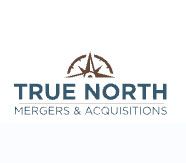Red Flags in Due Diligence

True North Mergers & Acquisitions
July 17, 2024

Warning Signs You Shouldn't Ignore
As a business owner preparing to sell, you may feel like the king of the world at times, but don't let the thrill of the deal blind you to the icebergs in the water – the red flags that can sink even the mightiest of ships. The due diligence process can bring to light an overwhelming amount of information that, if missed, can be as detrimental as an iceberg was for the Titanic — potentially leading to legal troubles, monetary losses, or even harm to the business's reputation.
Recognizing the red flags and establishing whether you have mitigated those risks and liabilities is essential. In this blog, we explore seven potential deal breakers that can be found during the due diligence process.
So, what are the red flags in due diligence for an M&A deal? How can you identify them? And most importantly, what can you do if you believe there is a red flag?
Lack of Compliance
Nothing is more crucial than historically consistent accounting practices that parallel compliance with Generally Accepted Accounting Practices (GAAP), even if not certified by a CPA firm, if you want a seamless transaction. Compliance with IRS codes, governmental regulations, non-negotiable industry standards, and lack thereof, is a massive red flag. Those actions (or lack thereof) could result in sanctions, hefty fines, or even an operational shutdown. Carefully assess the company's adherence to all industry standards, relevant laws, and applicable environmental regulations, and check for a history of violations. Compliance is not just a box to check but a testament to the company's strength and integrity.
Legal Landmines
Whether found liable or not, ongoing litigation or other unresolved legal issues can pose significant risks and lead to substantial financial losses. The reality of unresolved legal matters is they are a ticking time bomb that can impede any deal, no matter the outcome. Carefully review all past, pending, and potential lawsuits involving the company you want to merge with or acquire. Such issues could divert stakeholder attention from vital business activities and destroy the company's reputation. Unearthing these legal landmines can maximize the value of your business and allow the buyer to make an informed decision.
Financial Discrepancies
Potential buyers or the Certified Public Accounting firm (CPA) they hire to perform a Quality of Earnings (QofE) analysis will dissect your financial records with a fine-tooth comb, searching for signs of weakness or instability. A Quality of Earnings analysis is comparable to a full financial audit by a third party. Beyond stress testing the amount of EBITDA (Earnings Before Interest, Taxes, Depreciation, and Amortization), check annual capital expenditures and book value versus the market value of fixed assets on your balance sheet. Presenting a pristine financial picture showcasing your business's proper health and potential is vital. Anything less can lead to a lower valuation, protracted negotiations, and even deal-breakers. Ensure your records are accurate, up-to-date, and transparent. Work with your M&A Advisor to get prepared and organized for due diligence by developing your checklist of documents you probably will need when the buyer starts DD. Pay close attention to:
- Outdated statements
- Missing documentation
- Inconsistent revenue figures
- Unexplained expenses
- Reported profits and cash flow discrepancies
Presenting a transparent financial picture will secure a fair valuation and build trust with potential buyers. This trust is the foundation upon which smooth, successful transactions are built. Don't risk your goals – ensure your financial records are impeccable.
Talent Trouble
As a business owner, you know all too well that it is hard to find good talent and how critical a productive, skilled workforce is to a company's success. High turnover rates and widespread employee dissatisfaction aren't just internal issues—they're blaring red flags for strategic buyers, especially those eyeing horizontal integration. These problems signal issues that can poison even the most promising acquisition. Before sealing any deal, it's crucial to scrutinize unresolved labor disputes, examine union activities, and gauge overall job satisfaction. Ignoring these warning signs can lead to a costly domino effect of expensive recruiting, operational inefficiencies, and a tarnished company reputation that can haunt you for years. By prioritizing this, you're not just avoiding the red flags—you're paving the way for seamless integration.
Integration Challenges
Integration challenges in mergers and acquisitions are as diverse as the deals themselves, ranging from complex financial structures and operational process challenges to cultural alignment, supply chain management, and methods of production disruptions. It is crucial to conduct a thorough operational and cultural compatibility analysis of any business you are looking to acquire and consider ways to identify and resolve any inefficiencies that may arise if you move forward with the deal.Anticipating the integration challenges and preparing the company will help maximize the value of any transaction.
Unsecured Intellectual Property
It's essential to be aware that failing to protect your intellectual property, such as trademarks, copyrights, and patents, can be a red flag that will adversely impact the deal. Unprotected intellectual property found in due diligence can lead to the loss of a company's competitive advantage or even diminish its appeal to potential buyers, particularly in today's digital era.
Hidden Dangers of Customer and Supplier Concentration
In the complex business world, diversity isn't just a buzzword—it's a lifeline. When it comes to your customer base and supply chain, putting all your eggs in one basket can lead to catastrophic consequences for your business and, eventually, your M&A deal. Imagine your business as a tightrope walker, balancing on a thin, narrow wire. Now, picture that wire as your primary customer. Exhilarating. But what happens if that wire suddenly snaps?
Now, let's shift focus to your suppliers. A sole supplier might offer great deals and seamless communication, but they're also a single point of failure in your supply chain. Picture this scenario: your sole supplier faces a significant disruption, and suddenly, your production grinds to a halt. Orders pile up and are left unfulfilled. This leaves room for competitors to swoop in and your reputation to take a hit. We call this the supplier squeeze. Other parties in a deal will view the supplier squeeze as a massive red flag.
To avoid these red flags, diversify your customer base and supply chain. By diversifying your customer base and supply chain, you're not just protecting the business but positioning it for sustainable growth and success.
These red flags can make or break a deal's success in the high-stakes world of mergers and acquisitions. The due diligence process may be challenging, but it ultimately benefits business owners such as yourself by helping you see the warning signs that should not be ignored. This process provides peace of mind to all parties involved, mitigating risks and liabilities and paving the way for a successful closing.
Many companies struggle to identify the red flags specific to their business, and that's where True North Mergers & Acquisitions comes in. Our deal teams are dedicated to guiding business owners like you in uncovering and addressing potential red flags before you sign the Letter of Intent (LOI), ensuring informed and confidential acquisition decisions that drive success.
About True North Mergers & Acquisitions:
True North Mergers & Acquisitions was established in 2001 and is a national sell-side and buy-side advisory firm that provides solutions to lower-middle market companies with revenues of $10-$150 million. True North Mergers & Acquisitions senior professionals have experience across various industries, allowing the firm to perform transactions across all sectors. Headquartered in Minneapolis, North Mergers & Acquisitions' roots are with Sunbelt Business Advisors and a staff of over 70 professionals. Our seasoned M&A team, led by former middle-market C-level and senior executives, brings firsthand strategic and operational experience, including successful exits from the lower-middle-market companies they founded. Additionally, our deal teams include financial experts with a profound understanding of accounting, finance, and complex transaction mechanics. They will guide you through every step of your transition strategy using our proven, unbiased, advisory-focused services and investment banking QuietAuction™ process. The combined ability of accomplished executives with financial acumen and a proven best practice process ensures that every aspect of your deal is meticulously handled, leaving no money on the table. "Help people first, and success will follow" - TNMA Culture Creed.
Subscribe to our Newsletter
Sign up for the latest industry insights from True North Mergers & Acquisitions.




